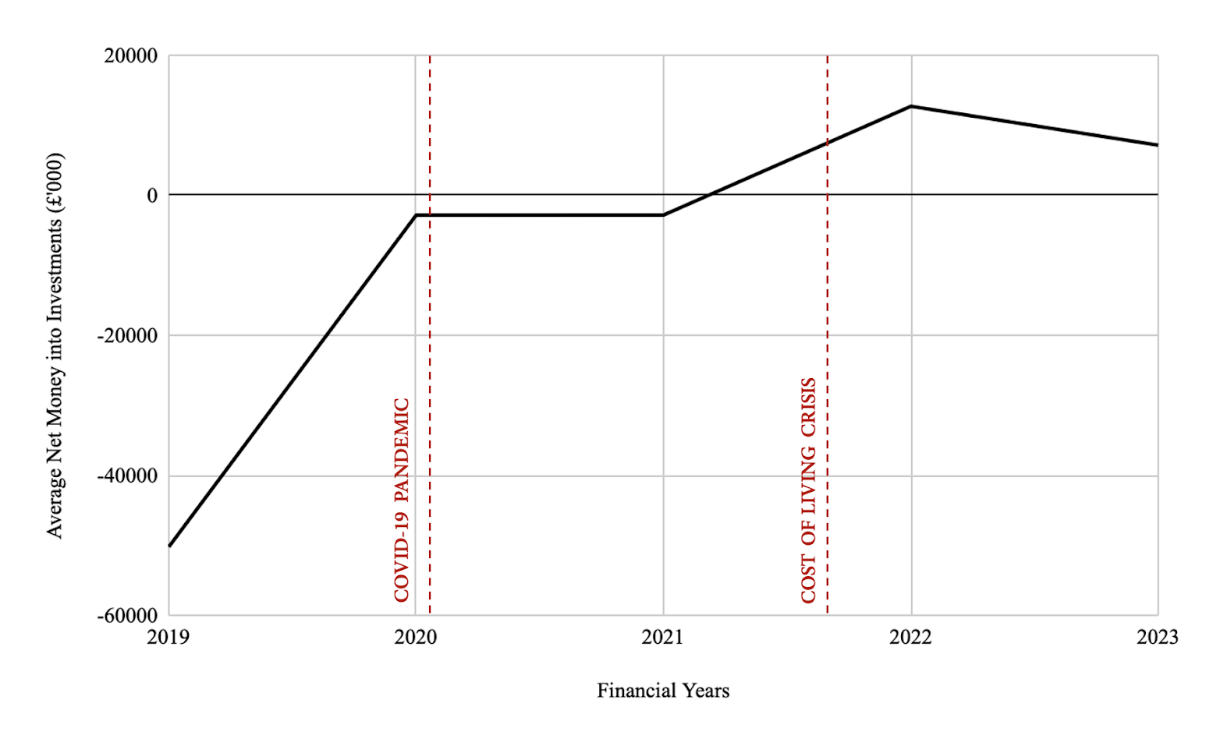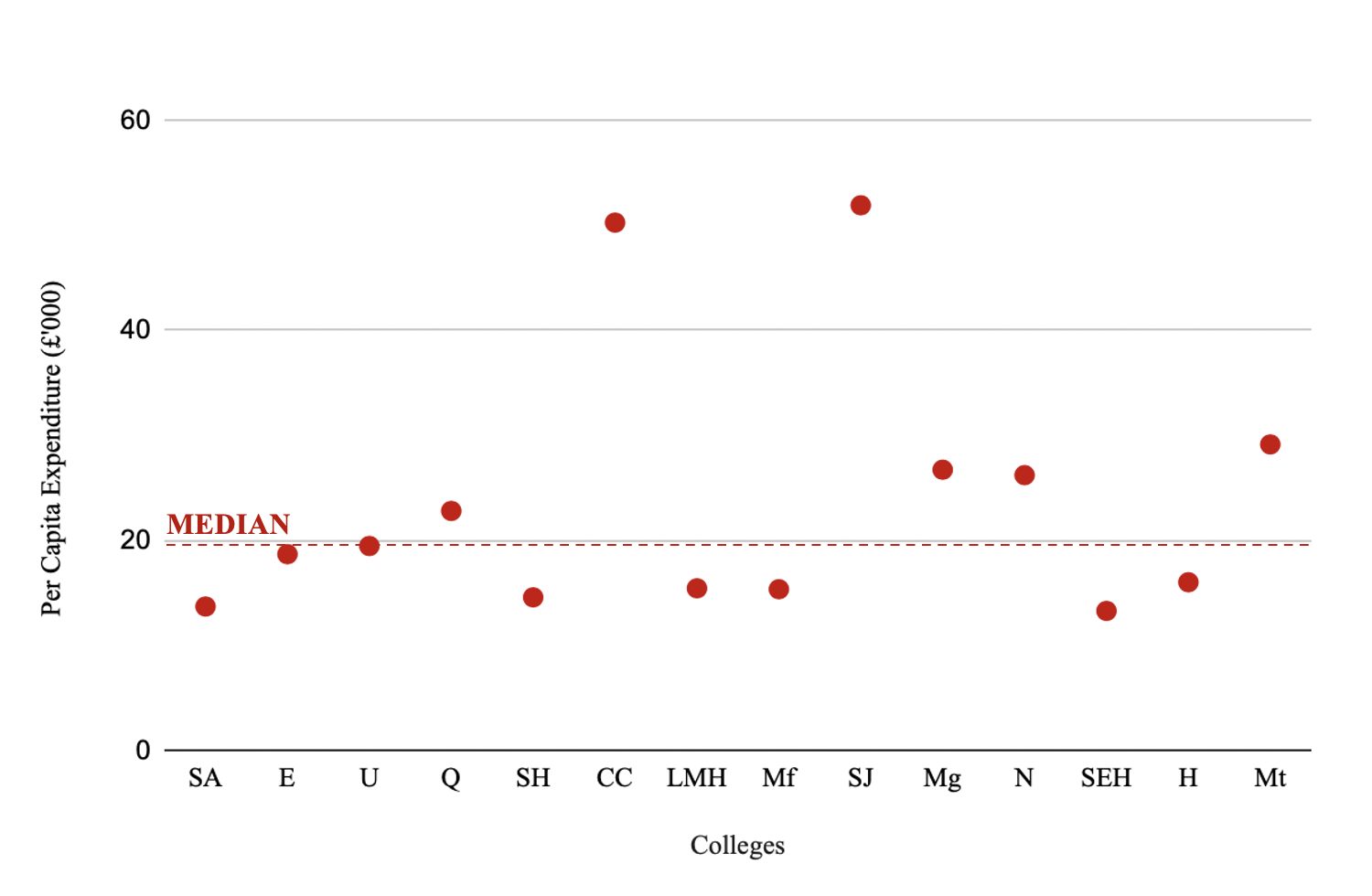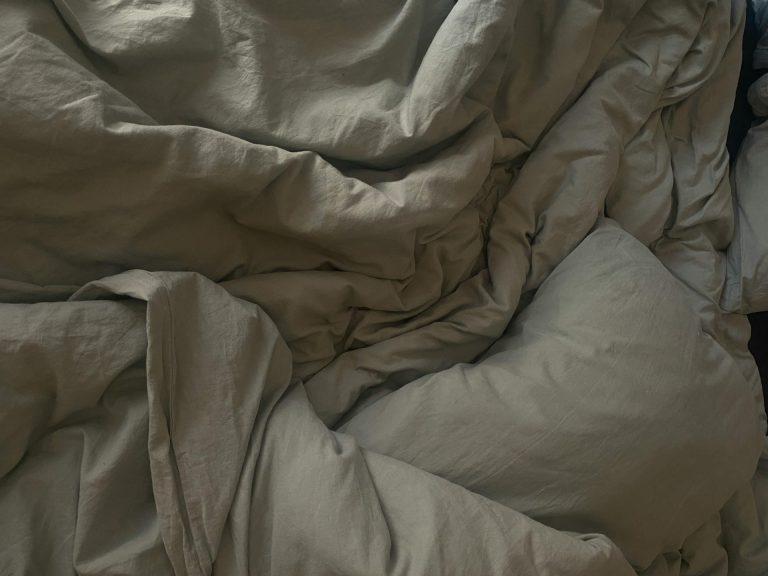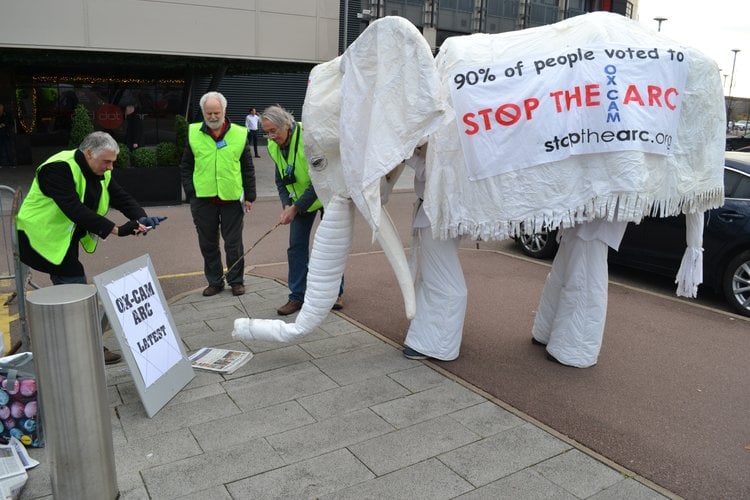Journalist, broadcaster and bestselling author of three books, James O’Brien has been leading Britain’s conversation for 20 years. His signature qualities – clarity, wit, intellectual honesty and a masterly style of interrogation – have earned him 1.4 million weekly listeners and the title of “conscience of liberal Britain.” I spoke to him at the studio at LBC:
Cherwell: We’ll start with a few quick getting-to-know-you questions. Three favourite meals?
O’Brien: So, fish and chips with mushy peas. A really good souvlaki, in Greece, the full-on pita Kalamaki wrap. And then probably a Sunday roast.
Cherwell: Three favourite novels?
O’Brien: The Catcher in the Rye by JD Salinger, Pride and Prejudice by Jane Austen, and… any of the CJ Sansom books about Matthew Shardlake.
Cherwell: Three favourite films?
O’Brien: If, the Lindsay Anderson Film. The Wizard of Oz. And Star Wars: The Empire Strikes Back.
Cherwell: Looking at your early life, what stands out to you in light of your later career?
O’Brien: The fact that my father was a newspaper journalist is probably the most significant element. Our relationship with the news was almost constant. We’d always have the radio on in the car, it would always be the news, on the drive to school it was the Today programme was on with Brian Redhead. On television, in the days when we only had one screen in the house, the nine o’clock or ten o’clock news was always on. Before the internet my dad would only establish the next day’s task by watching that day’s task.
Cherwell: When did you know that that was what you wanted to do?
O’Brien: Looking back, I think I just wanted to be like my dad, as all sons who are lucky enough to have amazing dads do. I wanted to be either an actor, a journalist or a politician, pretty much as long as I can remember. It was only when I got onto Fleet Street that I discovered I wasn’t cut out for being the kind of tireless news reporter my dad was. He was fearless in the pursuit of a story whereas I was crippled with anxiety in the pursuit of almost anything.
Cherwell: Did journalism appeal to you even in your schooldays?
O’Brien: Yes. At prep school, aged 7 to 13, I set up my first newspaper which was called The Winterfell Times, which indicates how early these ambitions set in. At public school I set up a magazine called The Grapevine – with Bill Cash’s son, actually, so it was a broad political spectrum. It was all about newspapers for me until later I accidentally fell into broadcasting. I was serious about acting by the time I got to LSE. I wanted to go to drama school but part of the deal I struck with my mum – because I got expelled from school, unfortunately, and my parents had spent all this money on my education – was that I’d get an LSE degree, and if I still wanted to be an actor they’d help me through drama school. But halfway through the LSE I saw Michael Sheen in a play called When She Danced, opposite Vanessa Redgrave, and I think he’d been plucked from his final year of drama school to play that part. I remember saying to my girlfriend at the time, ‘There’s no way I’m going to be an actor’, because I watched his performance and thought, if he’s top of the premier league, I’m going to be tenth division if I’m lucky. I’ll never be that good in a billion years, I thought, he’s got something magical. I wanted to find something I could be really, really good at. And getting expelled from school was not the best preparation for a career in politics, although I’d never have been one of those kids who go straight from university to the party, in a research role and then a safe seat. I was detached as a student, all my mates were in London, and I stepped back a bit from the student life. If I’d been immersed in student life at somewhere like Oxford, I think I’d have ended up even more unbearable, I’d have got heavily involved in the Union.
Cherwell: Yeah, you don’t want to go near there. So, when journalism was the only option left, what was your first break?
O’Brien: It didn’t happen for me. My father was made redundant by the Telegraph in my final year of school, and it was five years later that I was trying to enter the field, so he didn’t really have any contacts left. I hadn’t had any experience, I’d been too busy acting, doing things like the Edinburgh Festival. But in my final year at LSE, Charles Moore, then editor of the Sunday Telegraph visited the university. And he used to shadow my dad in Birmingham. I buttonholed him, reminded him of his association with my father, and asked for some work experience – very naively and arrogantly thinking that that would be it, I’d get some experience at the Telegraph and never leave. But at the end of the two weeks it was thank you very much and goodbye. So my student job became my job job, and I was selling suits in Regent Street. I actually loved it: working in retail is 80% colleagues. I worked with a great bunch of lads, and we also had some prominent customers.
Cherwell: You mentioned a story about a Lady once on the radio.
O’Brien: Yeah, that was grim. She brought her son’s pyjamas back to exchange them and let’s just say when I took them out of the bag it was very clear they’d been worn very enthusiastically… One day, I got sent Downing Street because John Major wanted to buy a suit. He was very charming and he bought three suits, one white. Now, John Major was portrayed in the UK media as grey – in Spitting Image his skin was grey – so the idea he bought a white suit, I knew that was a story. The Daily Express offered me some money for the story. I said, Can I have two shifts instead? And they said Yes. And that was my foot in the door. It was a nightmare in some ways, some bits of the job I was appalling at. But from there I got onto the Evening Standard and the Daily Telegraph and after 18 months, I was able to live on journalism.
Cherwell: How did you get into LBC?
O’Brien: I became a roving showbiz reporter and would get invited onto TV programmes to comment on showbiz stories. It was exciting, more than working on newspapers. I might not know much about the topic that week but – spoiler alert – nobody does. These days you watch some of these weird new TV channels and it’s as if they’ve just found someone in the canteen and called them a ‘political commentator’. I became Showbiz Editor at the Express – the money was extraordinarily good compared to what your generation can expect, and invitations to all the good parties – and started talking about other topics as well. I started getting positions on TV shows. One day I was in the ITN building on Grays Inn Road and there was an emergency replacement for the other panelist, a woman called Sandy Warr who presented a show on this radio station called LBC. She told me her holiday cover had just cancelled and that I should phone the programme controller. I said I’d never done anything like that in my life. She said all I had to do was talk when the light came on. So I did. And I haven’t left yet.
Cherwell: When did you get your own show?
O’Brien: I got a slot at 10PM Sunday nights. I did that for six months, listening figures came in and they gave me a breakfast show. I did that for six months, listening figures came in and they gave me a weekday show.
Cherwell: The format of your show was different then to what it is now, though?
O’Brien: Was it? How do you know? You weren’t born!
Cherwell: That’s what I’ve heard.
O’Brien: The format was more traditional but what I loved most was talking to the microphone as if it were one person. If I’m in the bath or the car or the bed with you, there is one person I’m talking to, in the office, in your ear – after I realised that everything fell into place. It was my job to get people to ring in or keep listening. I realised I shouldn’t be booking guests to do that, I should be able to do that myself. The more people I spoke to, the more political I got.
Cherwell: And it was a big political guest in 2014 who made the show go viral.
O’Brien: This is Nigel Farage [pronounced Farridge]. That was very weird. Until then, if I did something brilliant on the radio, you’d never know unless you listened to it; the notion of the viral clip was utterly alien. Quite a convoluted story about how Farage ended up in the studio, but he thought he was coming in to have his tummy tickled or to somehow get the better of this bloke on the radio. It didn’t work out like that. He completely soiled himself in the studio. I helped him, obviously, but I couldn’t have done it without him. That was the first time a clip went on YouTube and got halfway round the world.
Cherwell: I’d definitely recommend everyone reading this to give that clip a watch. What happened next?
O’Brien: The Newsnight Deputy Editor rang the producer thinking that the producer had been in my ear giving me the lines. They had a meeting and established that it was me they were interested in, and I went to see them, and occasionally presented Newsnight for a while. Meanwhile LBC was going from strength to strength and when the choice came, I chose radio over TV, and carried on building what I’d spent the previous 10 years building.
Cherwell: 2016 with Brexit was when the show really took off, wasn’t it?
O’Brien: Yes, there were so few places in the British media where reality Remained – to use a pun. People would ring me and repeat the lines Boris Johnson or Nigel Farage or David Davis had said, I’d ask one or two questions, and they’d fall apart. It went truly bonkers. It wasn’t happening anywhere else. Almost every paper had encouraged its readers to vote for this insanity. The slim chance of damage control disappeared the minute Nick Timothy told Theresa May to appease the racists by abolishing free movement, which meant the end of the single market and the customs union. I still don’t know how much of it they understood, and with every year you realise how little genuine intelligence there was in most of these rooms. It became a rare place in the UK media, and my show was the only place where you had to back up rhetoric with facts. If you told me we had to leave the EU to make our own laws, I’d ask what laws you wanted to make or don’t like having to obey at the moment. It went mad to the point where the New York Times ran a piece on the man who made radio go viral. There used to be snobbery attached to this format. People would say ‘Oh, it’s just some thicko from Dagenham who can’t string a sentence together, it’s like shooting fish in a barrel’, but that’s offensive and deeply patronising, because the Jacob Rees-Moggs and Nigel Farages of this world have no more answers.
Cherwell: What’s your technique and aim with these callers?
O’Brien: I used to be a bruiser, I’d like a fight and that worked for a while. Subsequently, partly because I had therapy and stopped living life with my fists up, I just asked people calmly to explain themselves. We lived during this period of extraordinarily strong opinions built on nothing, as if the louder you shouted, or the more robustly you accused someone of being a traitor to the country, the less scrutiny there was of what you were actually saying. The customers of the snake-oil salesmen would turn up, I’d ask them to prove their points, and they couldn’t. And I just wouldn’t let up, I’d keep them on the phone for 20 minutes at times. You rarely hear that absurd inflated confidence being properly deflated, because usually they’ll move on or change the subject. I don’t like doing that. These people have robbed my children of freedom of movement, they’ve robbed my countrypeople of economic stability – and they’ve done it on a stupid poster or a racist lie.
Cherwell: Have you considered the value of the show as social documents? It gives a better picture of society after 2016 than a lot of other outlets.
O’Brien: I hadn’t thought of that. I hope it’s not conceited to say that, now you’ve pointed it out, I acknowledge and am quite proud of that. I came to write a book that is essentially a document of that period, very much drawing on what I’ve learnt from conducting phone-ins. If you want to know how we ended up with Boris Johnson or Liz Truss as prime minister, you couldn’t have had a better job for twenty years than speaking to the people who believed their nonsense. The archive, to use a pompous word, will provide insights into how people ended up defending such epic corruption.
Cherwell: I’m glad you brought up your books as well. It’s three books – How to Be Right, How Not to be Wrong, How They Broke Britain. Did you feel a drive to write rather than speak?
O’Brien: I mean, they’re very different books. The first is a digest of my radio hits. The second was written after I’d had therapy to deal with a family crisis, and I learnt so much about being wrong, holding and arguing toxic opinions; it was so revelatory I wanted to write about it. The latest one was murderously difficult to write. It was like being at college, proper hard work, loads of references and research. But I wanted to prove these ten people were culpable and I had to dig very deep. It was hugely enjoyable and at moments it was like flying a kite, but at other times I couldn’t get up on Sunday mornings to write. That killed any temptation to shift towards writing as a career path.
Cherwell: Any other potential book ideas?
O’Brien: I’ve got a novel set in a boarding-school that’s been bubbling away in the back of my brain for a very long time. But I don’t know if I’ve got the talent or levels of application for it. I don’t have more plans for non-fiction, unless I have an idea as appealing to me as How They Britain. If I do write more, then I have to sit down at the desk again for six hours.
Cherwell: Who is your biggest influence as a journalist?
O’Brien: Ooh… I don’t have one. The journalists and presenters I admire the most are Michelle Hussein, Emily Maitlis, Victoria Derbyshire, Eddie Mair. The journalists who do what I try to do: tell stories in a way that people find illuminating and engaging. Eddie had that ability to connect with somebody. Jonathan Ross, we used to plan car journeys according to when he was on air. That’s what I aspire to, to have that communication with the listener which is so personal.
Cherwell: Final question: looking to the future, any other things to tick on the bucket list?
O’Brien: I mentioned a novel. A tiny bit of unfinished business: I’d take the right TV project if it came along, because I had to leave Newsnight when I didn’t really want to. But I’ve never felt at home on telly as I do on the radio. So, I know it sounds weird for a 52-year-old, but not really anything more on the bucket list. When I was 42, I’d have told you resentfully about all the things I wanted to do which hadn’t happened, but oddly, since 2016, they pretty much have.
James O’Brien’s latest book, How They Broke Britain, is out now in paperback. You can find my review of it here.














